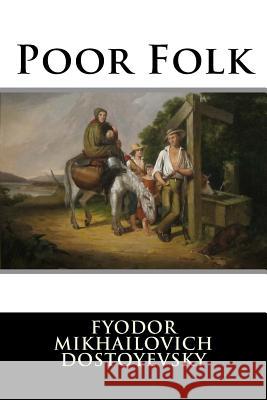Poor Folk » książka
Poor Folk
ISBN-13: 9781512239546 / Angielski / Miękka / 2015 / 70 str.
Written in 1845 and published in 1846, Poor Folk or Poor People is a natural beginning point for anyone who wants to read Dostoevsky. The novel occupies a position of particular interest and importance in both the history of Russian literature and Dostoevsky's work as a whole. Several lines of development in Russian prose intersect: sentimentalism, naturalism, the physiological sketch, and the phenomenon of Gogol, with whom Dostoevsky maintains a dialogue throughout the novel. This is the first novel by Fyodor Dostoyevsky, written over the span of nine months between 1844 and 1845. He was in financial difficulty because of his extravagant living and his developing gambling addiction; although he had produced some translations of foreign novels, they had little success, and he decided to write a novel of his own to try to raise funds. Inspired by the works of Gogol, Pushkin, and Karamzin, this novel is written in the form of letters between the two main characters, Makar Devushkin and Varvara Dobroselova, who are poor second cousins. The novel showcases the life of poor people, their relationship with rich people, and poverty in general, all common themes of literary naturalism. A deep but odd friendship develops between them until Dobroselova loses her interest in literature, and later in communicating with Devushkin after a rich widower Mr. Bykov proposes to her. Devushkin, a prototype of the clerk found in many works of naturalistic literature at that time, retains his sentimental characteristics; Dobroselova abandons art, while Devushkin cannot live without literature.
Zawartość książki może nie spełniać oczekiwań – reklamacje nie obejmują treści, która mogła nie być redakcyjnie ani merytorycznie opracowana.











